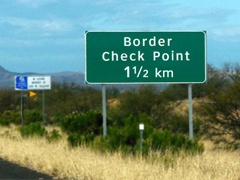 The recent upswing in terrorist activities is troubling. Terrorists have gotten smarter and more tactical with how they carry out their attacks. Although they haven’t stopped targeting the air industry as evidenced with the recent bombing of Metrojet Flight 9268 over Egypt, they have shifted toward more ground attacks.
The recent upswing in terrorist activities is troubling. Terrorists have gotten smarter and more tactical with how they carry out their attacks. Although they haven’t stopped targeting the air industry as evidenced with the recent bombing of Metrojet Flight 9268 over Egypt, they have shifted toward more ground attacks.
Clearly, these attacks on places of worship, markets, cafes, hotels, and stadiums are becoming more common than we would like. Because of this, there are concerns of security especially in countries with open borders. This has some people asking whether Europe’s open border policy is making it easier for terrorists and criminals to do business. If so, would it be wise for Europe to bring back its internal borders?
Europe’s Border-Free Schengen Area
Established in 1985, the border-free Schengen area allows for free travel between participating European countries without a passport or ID card. Currently, 26 different countries participate including Poland, Italy, Denmark, Spain, France, and Germany.
Millions of residents are allowed to travel freely within Europe’s open border area. Citizens commute from one country to another to work and tourists go there to travel on holiday. Now it seems like this privilege of free travel is being taken advantage of and it has some suggesting that Europe has become a hotbed for terrorist activity.
Benefits of Closed Borders
 Implementing border controls would deter terrorist and criminal activities. It may not always stop them, but it would certainly impede on their activities and make them think twice. With border controls, illegal activities would have more of a chance to be caught.
Implementing border controls would deter terrorist and criminal activities. It may not always stop them, but it would certainly impede on their activities and make them think twice. With border controls, illegal activities would have more of a chance to be caught.
Each country would be able to oversee who is allowed within their borders. Authorities would be able to immediately apprehend those who are wanted and track the movement of those on a watch list.
Disadvantages of Closed Borders
Closing borders wouldn’t be easy and there are downsides to doing so. Considering there are 26 participants in the Schengen area, it would be costly for each country to build and maintain border controls.
Workers and tourists would have less freedom of movement than they’re used to. They’ll be subjected to increased travel time due to lines at the border and thorough inquiries from border agents. People could be forced to apply for individual visas for each country they’d want to visit. This would make it difficult on those who live in one country but work in another.
Trade between countries would most likely be affected. Some businesses may suffer from decreased tourist traffic, resulting in less revenue. Other businesses may incur more costs due to additional time employees must spend on the road.
Summary
Whether the border is open or closed in Europe, terrorists and criminals will always find ways to get what they want. They’re dangerous and have proven to be resilient. Closing borders may slow down the flow of terrorist activity, but do the benefits outweigh the costs? Perhaps the best way to prevent terror activity is to greatly increase intelligence sharing between all participating countries of the border-free Schengen area.
What are your thoughts on Europe’s border as it relates to terrorist activity? Tell us what you think.
